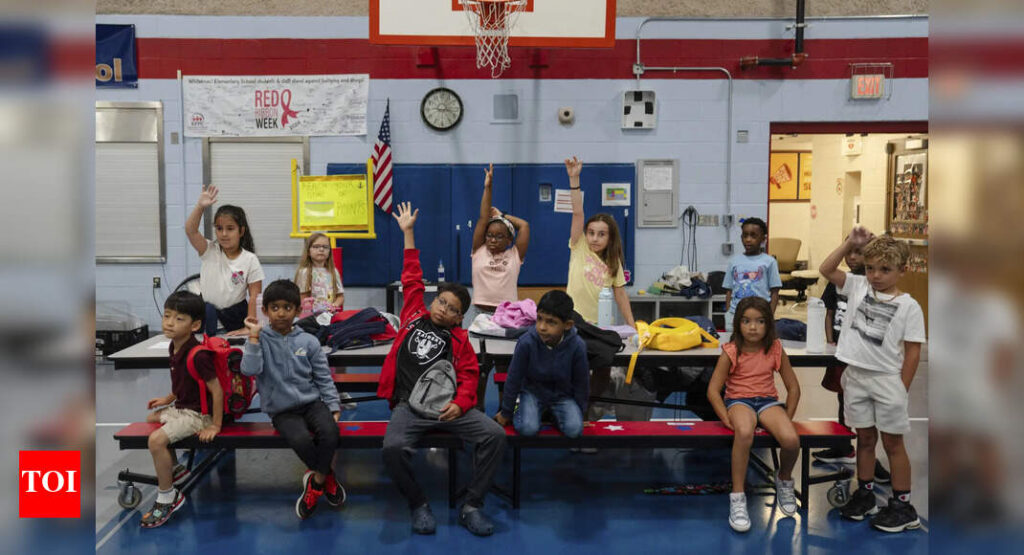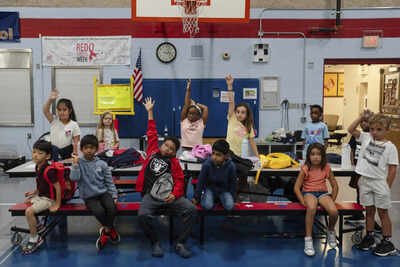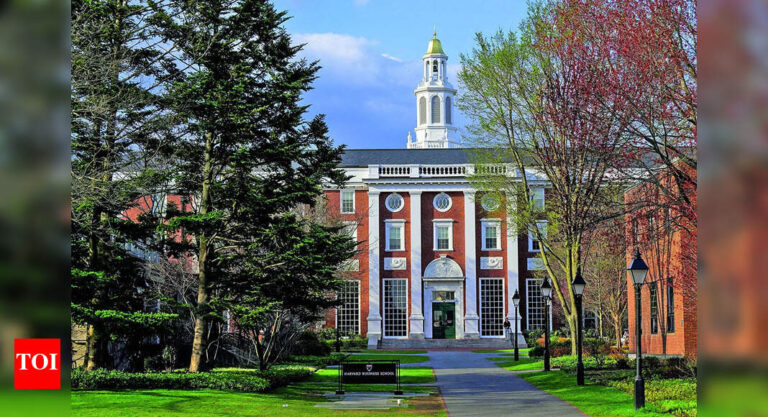
For millions of working parents across America, after-school and summer programmes are not a luxury—they are a necessity. From math drills to nature videos, these federally supported learning spaces have offered both safety and enrichment to children who otherwise have few places to go. Now, that safety net is fraying fast.The Trump administration has frozen over $6 billion in federal education grants, including funding for the 21st Century Community Learning Centers, a programme that provides free academic and childcare support to more than 1.4 million children—most from low-income households. Without urgent federal action, hundreds of Boys & Girls Clubs, YMCAs, and public school-based programmes could close within weeks.
Funding withheld, futures in limbo
The freeze, federal officials say, is intended to ensure that grant recipients align with the president’s policy priorities. The Office of Management and Budget has pointed to some programmes involving undocumented immigrants or LGBTQ+ inclusion as grounds for the review. But on the ground, the implications are immediate and apolitical.At the Boys & Girls Club in East Providence, Rhode Island, eight-year-old Aiden Cazares refused to let even a flash flood warning stop him from attending summer camp. “I wanted to see my friends and not just sit at home,” he said, running off to join a game as reported by the Associated Press.His mother, Darleen Reyes, drove through torrential rain just to sign him in. “It costs $220 a week” for private childcare, she said. “I can’t afford that.”
After-school programmes for fall at risk
While local support and emergency state funding have kept some summer camps afloat, the outlook for fall is grim. According to Sara Leutzinger of the Boys & Girls Clubs of America, if the administration doesn’t release the funds in the next three to five weeks, numerous after-school programmes will be forced to shut down.The YMCA and Save the Children—which support dozens of centres in rural areas—also face closures. “Time is of the essence,” said Christy Gleason, executive director of Save the Children Action Network. “It’s not too late to make a decision so the kids who really need this still have it.”
Impact felt strongest in Republican districts
Ironically, many of the districts most affected are represented by Republicans. According to a New America analysis, 91 of the top 100 school districts relying on the frozen funds fall in GOP-held congressional districts. Half of them are concentrated in just four states: California, Florida, Georgia, and West Virginia.Even Republican officials have raised alarm. “I deeply believe in fiscal responsibility… but also means being responsible—releasing funds already approved by Congress,” said Georgia’s schools superintendent, Richard Woods. “We’re getting ready to start the school year.”
More than a safe space
These programmes do far more than occupy children’s time. At the East Providence centre, Aiden spent his day learning about pollination, playing math games, and receiving gentle guidance from teachers. When another child repeated something inappropriate, a teacher leaned in and said: “When someone says something inappropriate, you don’t repeat it” as reported by the Associated Press. The Boys & Girls Club, a nonpartisan institution that has historically received support from both major parties and even the Defense Department, is now caught in the crosshairs of a political funding freeze.‘I Would Be Devastated if This Disappears’Families already feel the squeeze. Fernande Berard, a nurse, only learned about the potential shutdown when dropping off her three boys. “I would be really devastated if this goes away,” she said. Her husband drives for Uber, and early pickups would cut directly into their income.If funding isn’t restored, Berard may need to bring her sons to the rehab facility where she works—a logistical nightmare that puts strain on both her professional responsibilities and their childhood experience.
No alternatives, no options
For Reyes, Aiden’s mother, the only backup plan involves asking her older son to stay home and care for Aiden, meaning he’d have to give up a part-time job and quit his sports teams. “I don’t have any other option,” she said as reported by the Associated Press.What began as a bureaucratic funding hold now stands to derail the routines, futures, and livelihoods of working families. For them, the classroom extends far beyond school hours. Without urgent action, what remains of that extended classroom may simply disappear.








